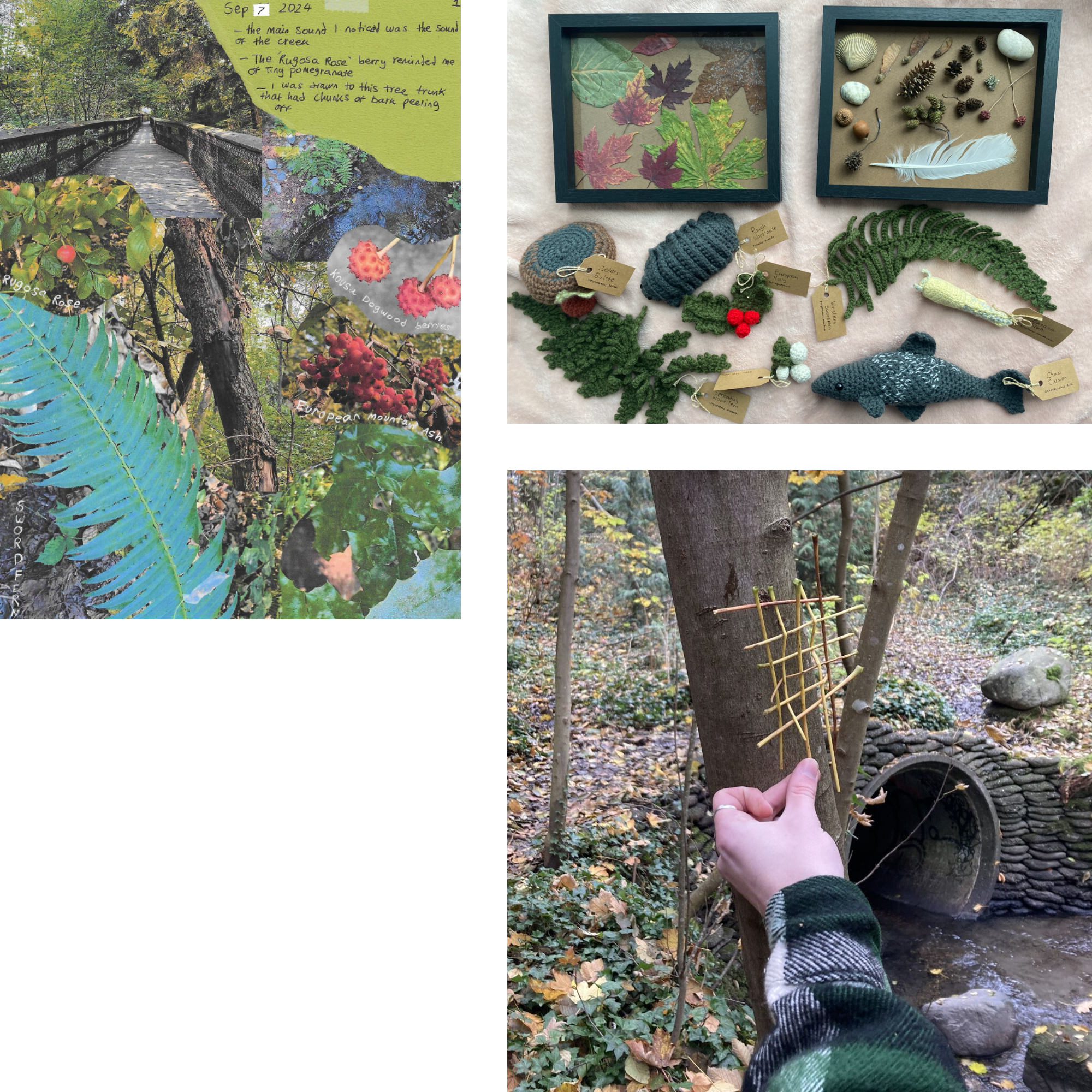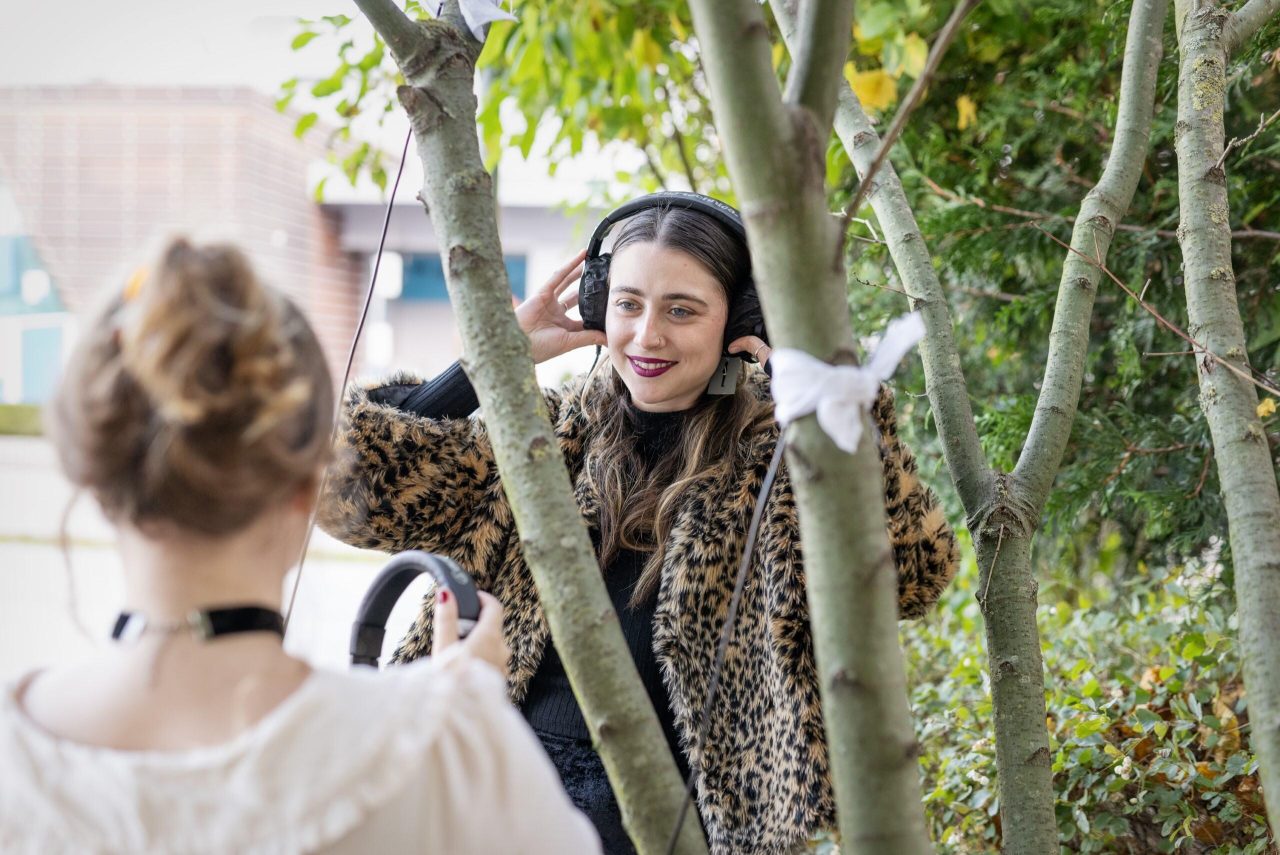Ecological Practices in Art

Art that connects land, ethics and imagination.
Connect your creative work with urgent environmental and cultural questions. Explore sustainability, decolonization and ethics through both critical inquiry and material explorationâwhile building relationships with land, local ecologies and more-than-human life. Discover how art can honour the living systems weâre part of.
What You Will Learn
This interdisciplinary minor blends critical theory with embodied, experiential learning to help you develop a meaningful, place-based art practice. Youâll explore environmental ethics, Indigenous methodologies, decolonial theory and more-than-human worldviews, while working with sustainable, earth-informed materials and land-based approaches.
Core courses like the Ecological Practices Field School and Environmental Ethics offer immersive outdoor sessions, workshops, and seminars that foster connection with local ecologies, water, land and the beings who live here. Youâll examine topics like climate change, habitat degradation and species extinction, drawing from fields such as multispecies studies, environmental and social justice, and Indigenous science.
Electives deepen your perspective through courses in animal ethics, sustainability, decolonial aesthetics and more. Throughout, youâll build the skills to research, collaborate, and create thoughtful work in dialogue with your peers and place. This minor prepares you to contribute to creative, institutional or community-based climate actionâand reimagine what art can do in a time of ecological crisis.

"Weâre living through an ecological turning pointâand artists have a vital role to play. This minor gives you the tools to think critically, create with intention and care, and reimagine how we relate to land, community and more-than-human worlds.â
Program Structure
Students typically declare a minor in the spring term of their second year. Each minor consists of a cluster of second- and third-year courses focusing on a specific theme or practice, with a historical, theoretical, and practical context.
Total credits: 18
Required courses: 9 credits
Elective courses: 9 credits
Required Courses
- : Environmental Ethics
- : Ecological Practices Field School
Sample Electives
- Indigenous Presence (recommended)
- : Animal Ethics and Creativity
- : Sustainable practices
- Ecological Perspectives - Design


